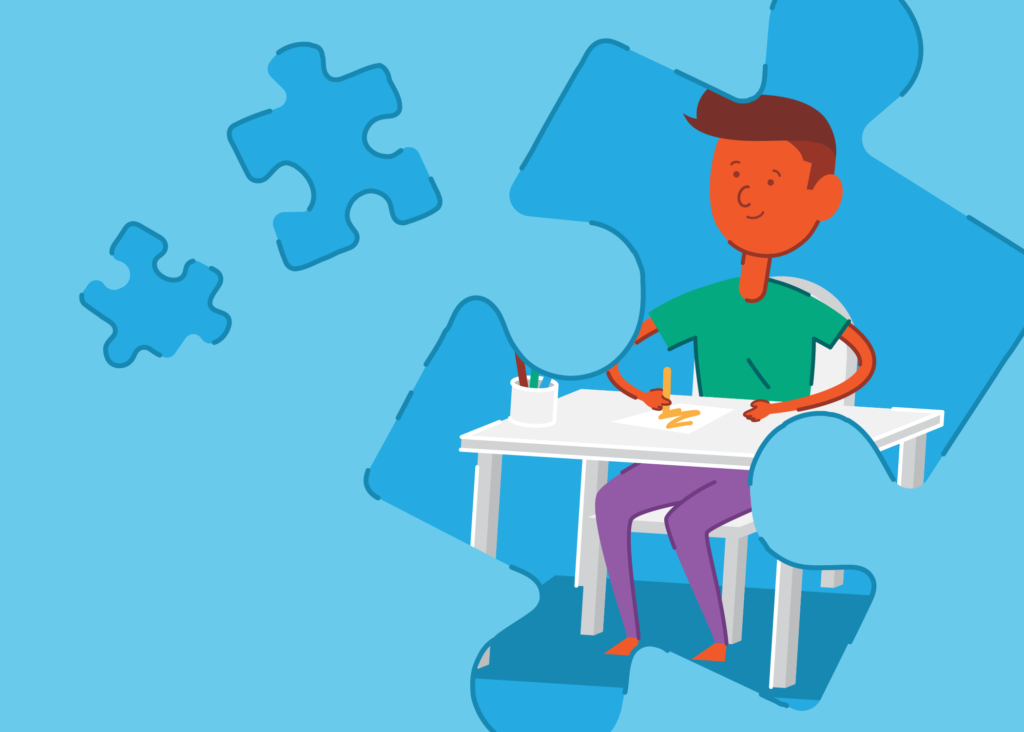Despite being relatively common, autism can be difficult for doctors to diagnose. It’s not detectable in routine diagnostics, such as a blood test, and the severity and pattern of impairments vary in each patient, which means every case is different and will require different forms of treatment. Doctors diagnose autism by observing behaviors and tracking developmental milestones in children as they grow. Recent Centers for Disease Control and Prevention data shows that roughly 1 in 54 children will be diagnosed with autism, also known as Autism Spectrum Disorder (ASD). Knowing some basic information about this behavioral and developmental condition can help you and your loved ones begin to figure out how to manage it.
Common Symptoms of Autism Spectrum Disorder (ASD)
Autism Spectrum Disorder can be diagnosed when a child is as young as 18 months old, but it may also take several years to receive an official diagnosis. Some common signs that physicians look for include:
- Difficulty or lateness in learning to speak, limited use of language or complete nonverbality
- Intense fixation or inability to fixate on objects of interest
- Getting upset by minor changes in life structure or routine
- Having little interest in others, including physical touch
- Avoiding eye contact
- Being hypersensitive to sensory stimuli
- Difficulty developing comprehension skills
- Repeating or echoing sounds and words spoken to them (also known as echolalia)
- Repetitive actions
While these are some symptoms of ASD, this is by no means a comprehensive list. Some high-functioning individuals with ASD simply have difficulty understanding and using social cues, or only experience hyperfocus in a limited capacity. It’s important to be mindful of developmental milestones and ask your pediatrician if you notice anything that might be concerning.
How to Manage ASD
It’s important for people with autism, along with their loved ones and caretakers, to know how to manage the symptoms of Autism Spectrum Disorder, and where to find helpful resources. ASD is a broad behavioral condition, so there are many ways that it can be managed.
Developmental Skills
Some children who are nonverbal, or who have difficulty speaking and communicating effectively, may need to receive support from professionals who specialize in teaching language skills. The earlier the individual with ASD receives speech therapy, the more likely they are to acquire communication skills at an earlier age. Speech and language professionals use a specialized curriculum to teach speech skills and can also provide their students with assistive devices to help them communicate, such as speech computers.
Beyond communication, an individual with ASD may need assistance with learning to express emotions and develop healthy relationships with others. Techniques such as “Floortime” and the TEACCH method can help with this, and can also help people with autism learn to respond to sensory stimuli.
Social Skills
Many people who have ASD have difficulty relating to others in a social context. Comprehending and using social cues may be challenging, and because of this, the individual with ASD may prefer alone time to social time. But through careful and patient instruction, they can learn to relate to other people on a deeper emotional and social level. Some people with ASD may need help with such skills for their entire lives, while others may respond more naturally to coaching and work toward social independence
Education
As previously mentioned, many individuals with Autism Spectrum Disorder have unique learning paths. They may feel less interested in traditional schooling, or may become hyper-focused on one or two activities that they are really good at and enjoy. While it’s important to encourage a child’s natural strengths, aptitudes, and interests, it’s also recommended to maintain a comprehensive learning plan to help the individual gain a broader skill set and knowledge base. This kind of structure will not only help the individual receive a high-quality education, it will also help empower them to live a more rewarding and fulfilled life.
Physical Abilities
Some individuals with ASD may also have difficulty with movement or day-to-day activities, like walking, dressing, bathing and eating nutritiously. Physical or occupational therapy may be necessary to help them become more mobile, and they may need help learning fine motor skills, such as handling food and brushing their teeth.
Along with potentially needing physical/occupational therapy, people with ASD may also struggle with other bodily conditions that are often linked to stress, such as gastrointestinal issues, depression and anxiety. This may mean that the person with ASD could benefit from additional mental health support and counseling along with their individual care plan.
Resources
Each person with ASD needs a catered plan to help them develop and lead healthy, enriching lives. Work with your family doctor to find the right specialists and resources to help your family develop a personalized care plan.
With awareness of ASD increasing in the world today, many resources have come available that people with ASD and their loved ones can make use of, including:
- Autism Speaks
- Autism Society
- Autism Now
- Blue Ridge Autism and Achievement Center
- Autism Society Central Virginia
We Can Help!
If you or a loved one has been diagnosed with Autism Spectrum Disorder, we want to help you figure out how best to manage this condition. With dedication and a well-structured plan, you or your loved one can develop the skills to succeed in this world despite the challenges that lay ahead. For more information or to schedule an appointment, contact us today!
